If you are looking for “What’s Next” in your business growth strategy, you no doubt currently using, or at least considering, innovation a key tool for input into that. But innovation is not enough to reliably lead to a breakthrough disruptive strategy. We only seem to be doing innovation and not really working on doing disruption.
In this video I talk about some of the key differences between the two.
As you're carving out whatever time you can to work on answering the question, "What's next?" for your organisation or your business, and how can you create the best version of that organisation or business for its future? I want to see if we can give you some tips and save you a bit of time when you're working on that sort of strategic stuff. These two words are completely overused at the moment, of course, and they're also used completely interchangeably, and there's a couple of issues with that. How about we look at our perception of them first?
Innovation. It's a positive thing, right? We should be doing more of it. Not only should we be doing more of it, we should be doing it well. Disruption is something that's affecting us, isn't it? It's something that is impacting our markets, technologies, being disruptive to the way things used to be, so from our mindset perspective, innovation's something we should be doing and are doing, but disruption is something that's happening to us. We need to switch that. We need to do both.
How do we do disruption, and what's the difference between innovation and disruption? Let's look at some of the characteristics of innovation. Innovation is often about a better product or service for our customer. You want to improve things. You make those improvements to your product and service, and so day one, innovation gives you a better product. Day one of disruption usually gives you a better strategy. We often know that the disruptors when you look back at them and say, "Well, gee, that was simple. Why didn't anyone think of that?" It's often an elegant solution to something.
How else are they different? Well, when we have a better product and service, we're usually thinking about the customer first. How do they want things to be different? How can we help them? Disruption is usually about changing the way the market operates. Innovation's genesis is often customer problems or customer needs and wants. Disruption's genesis is usually market opportunity. Focusing all of your time on innovation with customers actually won't generate disruption many times.
If we've got a better product to customers, then the mechanism we're looking for is conversion, so more people coming to our product or service. Or, if it's a new product or service, we can get switching and conversion from existing customers to the new and better product.
Disruption is usually about creating new demand. Demand where there wasn't before, or adding in users who were unserviced in a market before. This is about share, a bigger slice of the pie. This is about a bigger pie, or a new pie.
Even the process of innovation disruption can be different. We all know that the start of an innovation process is usually around some of these things, but often about ideation and brainstorming, which is divergent. It's an explosion of choice and options, and we write them all on Post-it Notes, and we put them around the room, and then sometimes do nothing. That wouldn't be you.
Disruption is less about a divergent process where you explode ideas, and more about a convergent process where you are looking at specific choices and tools that are frameworks where you have finite choice, you have that box or that box, or that box, and you try them on for size is a far more powerful route to disruption, I've found. This is about flips and swaps. This is about ideation.
Innovation, day one, better product. Disruption, day one, better strategy. The other thing to think about with both of them is that innovation's about better first. Disruption's about different first. The very first option on Airbnb was an airbed in someone's kitchen floor. Can you imagine if you're an employee of Hilton Hotels or the Marriott Hotel chain, and you went to your boss and you said, "Hey, I've got this idea. I've got this idea about a new way accommodation can work. We should use people's private houses and let's just start with putting an airbed on the floor." They didn't get Air Bed And Breakfast, Airbnb, the name didn't just come out of nowhere. It was an airbed on someone's kitchen floor, Brian Chesky's to be specific to start with.
Day one, not a better product, not as nice as a stay in the Hilton, but it was an interesting strategy, wasn't it? Innovation and disruption, not the same. Actually, it's best to do that first, and that second if you want a big, bold breakthrough leap in your strategy. If you want more incremental improvement, you can stick with innovation. If you want to disrupt your own market, you need to do something different.

Comments are closed.